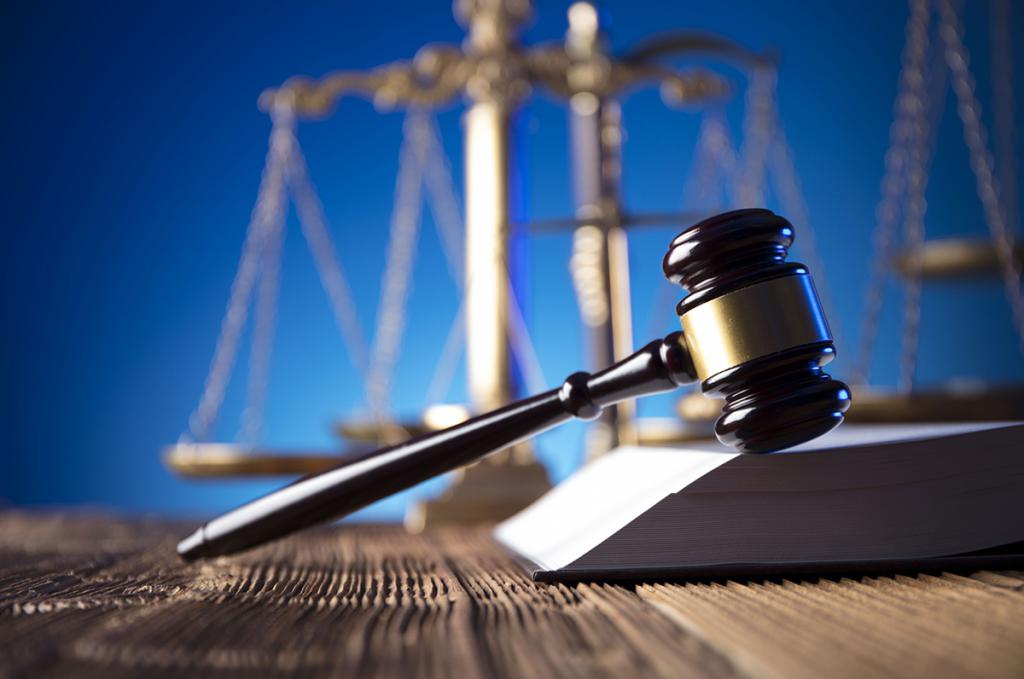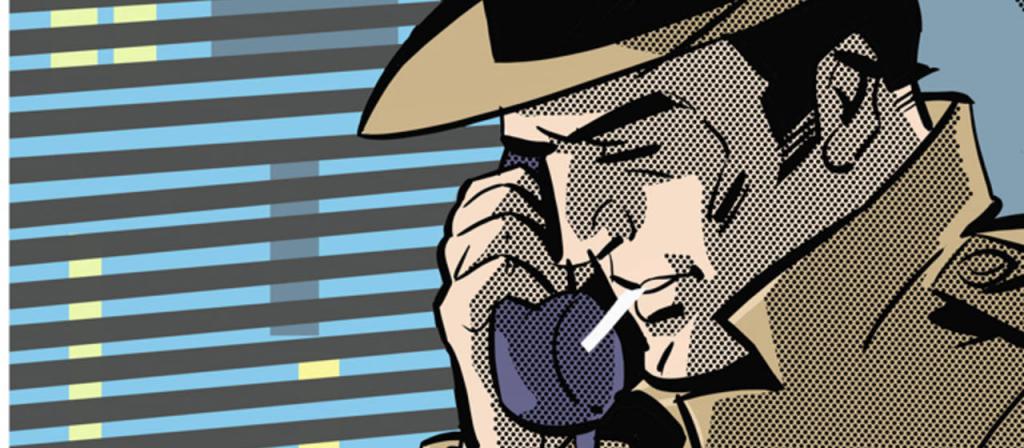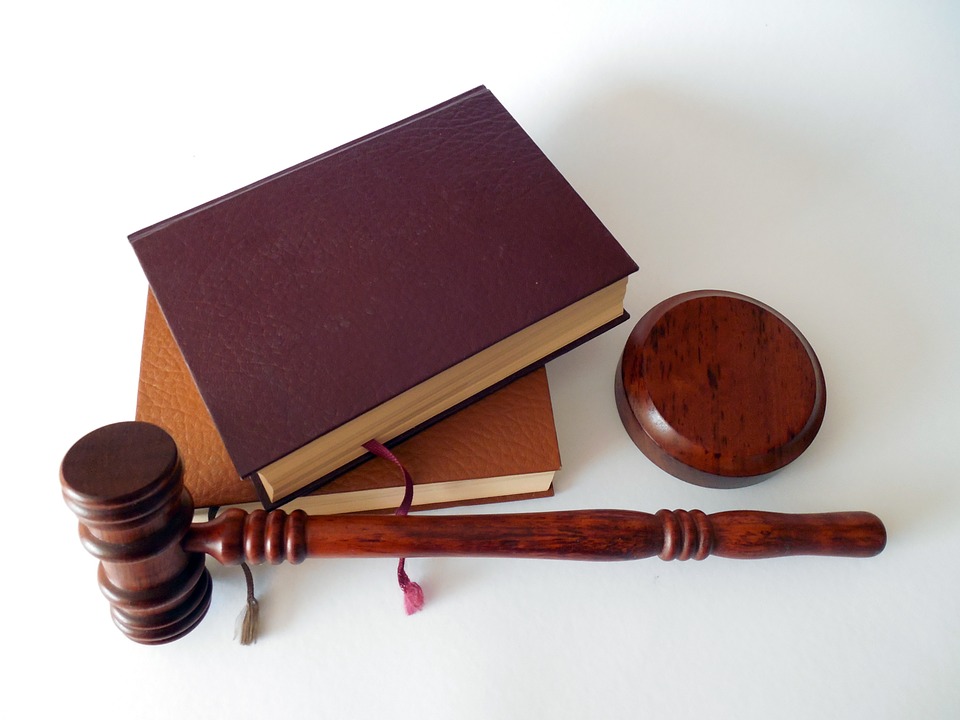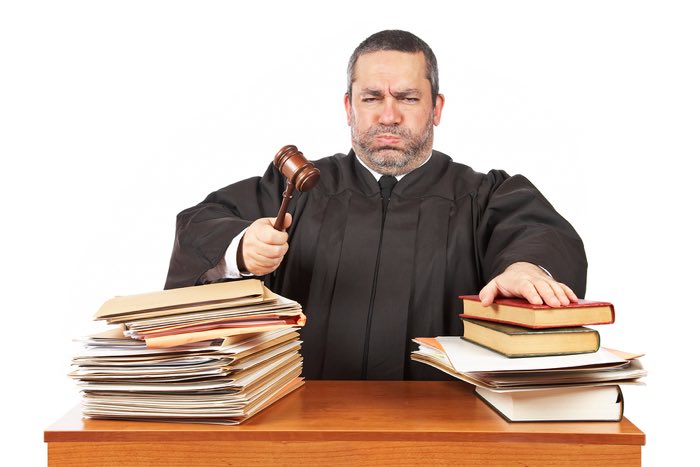Each of us knows that there is criminal liability for committing crimes. A person has committed a serious offense, and without strict punishment, and sometimes without isolation from society can not do. Therefore, the grounds, procedure and terms for attracting this type of responsibility should be clearly regulated by law. Today we will consider procedures such as suspension of a criminal case (UD) and termination.

Briefly by stages
- Any business begins with excitement. The Code of Criminal Procedure of the Russian Federation strictly defines all the reasons and grounds for that. The first include a statement, a confession, a report, etc.
- Investigation. Two forms are distinguished: preliminary investigation and inquiry. They differ in the categories of cases. The law clearly prescribes which of them should be used for the inquiry (intentional infliction of moderate / light damage to health, serious - through negligence, beating, etc.), for all the others it is always a consequence. Since 2013, the inquiry may be in abbreviated form. At this stage, “tacit” operational measures (implementation, inquiry, procurement, monitoring, wiretapping, etc.) are carried out if they were not carried out before the initiation of the case.
- Attraction of the accused.
- Making vowels: inspection, investigative experiment, survey, search, confrontation, interrogation, etc.
- At this stage, after taking all permissible measures, it is possible to suspend and terminate the criminal case on the grounds that will be discussed below.
- Drawing up an indictment or an act (if an inquiry is being conducted), referral to the prosecutor.
- Approval by the prosecutor / return, transfer of the case to court.
- Judicial proceedings (preliminary hearing, trial, sentencing). Suspension or termination of the case is also possible at this stage.
- Execution of the sentence.
The essence and grounds of suspension
Sometimes during the proceedings, situations arise when the investigation must be temporarily suspended for certain reasons. This is the suspension of criminal proceedings.
The main goal of this institution is to “freeze” the period of investigation, as well as protect the rights of the accused and prevent their unlawful conviction.
The Code of Criminal Procedure of the Russian Federation identifies the following grounds for suspending criminal proceedings:
- the accused is not identified;
- she hid from the investigation / whereabouts unknown;
- this person does not have the opportunity to actually be present during the UD proceedings;
- a serious temporary illness, confirmed by medical documents, in which the accused cannot be present during the investigation.
There can be no other reasons for a break, since this list is exhaustive.
If there is at least one of these grounds, the investigator issues a decision to suspend the criminal case, a copy of which is sent to the prosecutor for verification.
What if there are several suspects in the case at once, and there are only one reason for suspension? Then the investigator has the right to separate the case and terminate the proceedings for a while, provided that this does not harm the overall investigation.
Upon inquiry, the suspension of a criminal case is possible on all grounds, except the first.
Investigator actions
It has already been said above that suspension usually occurs at the stage after all necessary actions have been taken, in some cases until the accused is brought in if it is impossible to establish it.

Thus, one of the conditions for suspension is the adoption of full measures aimed at solving the crime. Even those that are possible in the absence of the accused himself - examinations, seizures, searches, interrogations of other persons, etc. In addition, if necessary, they must take measures to search for the suspect.
During this period, any investigative actions are prohibited.
The investigator shall issue a resolution on the suspension of the criminal case, which shall be sent to the prosecutor. In some cases, the investigator has the right to suspend the case only with the consent of his supervisor, the interrogating officer - with the permission of the prosecutor.
The victim, the civil plaintiff / defendant, their representatives are notified about this. If the accused is seriously ill, then he and his lawyer are also notified of the suspension for this reason. Moreover, these persons have the right to appeal the decision.
If there was a suspension of the criminal case in connection with the unidentification of the identity of the offender, then action is taken to search for that person. In the event that his whereabouts are known and he is hiding from the investigation, a wanted list is announced. The limitation period for criminal prosecution in the latter case is suspended until it is found.
In other cases, a time limit is not provided, and if the renewal reveals that it has expired, then the case is terminated.
This is the procedure for suspending a criminal case.
Wanted
This event is aimed at establishing the specific whereabouts of the accused or suspect, since without this main figure a trial and a sentence cannot take place.
The search may be initiated during the investigation or immediately with the suspension of the criminal case. Accordingly, this order may be contained in a decree of the same name or in a separate one.

In order for the search to be successful, it is necessary to submit to the inquiry bodies all the necessary documents about the identity of the accused: a certificate with his data, signs, a fingerprint card, a photo.
These papers are transferred within 3 days along with the decision on the wanted list to the authorized unit. In this case, the investigator should regularly monitor the progress of the case by sending requests to the search structure.
Next, operational workers find out the places of his probable location, send out orientations, check the pre-trial detention center, temporary detention facilities, other special receivers, morgues for unidentified corpses.
If after 10 days the information could not be collected, a search case is initiated, in which a local search plan is formed, versions are put forward.
In the event that local events have failed, the offender is put on the federal wanted list. The term depends on the severity of the offense. So, for especially grave and grave crimes (terrorism, murder, etc.), members of an organized criminal group who escaped from prison are put on the federal wanted list right away.
At the same time, an interstate search begins (CIS countries).
For crimes of medium and low gravity, the condition for being put on the federal wanted list is a local search for 3 months.
The international police (interpol) can connect if there is evidence of a person’s departure abroad or of such an intention, or relatives, friends live there.
An accused who has violated a previously selected measure of restraint (for example, a written undertaking not to leave the place of residence) or who does not have a permanent place of residence in the Russian Federation may be given custody.
The timing
The total term of the investigation is 2 months from the date of initiation of the case. This period is given for the full disclosure of the crime, in particular, the development of the evidence base for the court, the involvement of the accused, the conduct of investigative actions (interrogation, inspection, search, etc.), the application of coercive measures, the preparation of necessary procedural documents, etc.
This period may be extended for objective reasons or suspended.
So, the investigation can be interrupted only after the expiration of its term in cases where the accused is not identified, is hiding or his whereabouts are unknown.
If the person does not have an objective opportunity to participate in the investigation or has a serious temporary illness, then the suspension of the criminal case under the Code of Criminal Procedure of the Russian Federation may be before the end of a two-month period.
A break in the statute of limitations for criminal prosecution is provided only when the offender is wanted, in other cases, he continues to flow, and upon its completion the case may be dismissed.
What are the deadlines for suspending a criminal case? This period is calculated until the reasons for the break do not disappear. Then the case will be renewable.
Termination
This term indicates the completion of the investigation process of the crime. This stage can occur both at the beginning of the investigation and in court.

What is the difference between suspension of criminal proceedings and termination? In both cases, investigative actions are no longer being carried out, while for the period of suspension the criminal case continues to exist, the charges are not dropped from the person, and a dot is put at the end.
Often, reconciliation ends with private prosecution cases that begin with victims' statements and are reviewed by justices of the peace. These include beatings, deliberate bodily harm, slander without aggravating circumstances.
A criminal case may be closed in part, for example, in relation to one of the accused.
In any case, the representative of the body terminating the criminal case must explain to the person who was charged with, the grounds, consequences and his rights, duties.
Should rehabilitation be?
The above grounds for the suspension of the criminal case should also be distinguished from the reasons for its termination.
The latter can be divided into non-rehabilitative and those.
The second group includes those that provide restoration of rights, a person will be able to claim compensation, i.e. the person seems to be acquitted because of innocence.

Rehabilitation grounds:
- no crime event;
- no composition;
- missing victim statement, if necessary;
- non-involvement;
- the existence of a corresponding sentence, a resolution on termination, etc .;
- not received a document from the court on the presence of signs of crime in the actions of special categories of persons / lack of consent of the Federation Council, State Duma, Constitutional Court, qual. Collegiums of judges, respectively, to initiate criminal proceedings or to be brought as the accused.
Non-rehabilitation grounds are presented in the following list:
- death;
- active repentance (if the crime of small or medium gravity is committed for the first time);
- reconciliation with the victim and compensation for harm to him (categories of crimes are similar to the previous paragraph);
- act of amnesty;
- statute of limitations, etc.
For the last two reasons, termination requires the consent of the suspect or the accused.
The second reason in the form of repentance should not consist only in confession, the offender should actively assist the investigation in disclosing, make amends for the harm, legal scholars believe that he should internally condemn himself for his act.
Due to the achievement of peace between the parties, the case may be terminated only at the request of the victim. The investigator closes the case with the consent of his supervisor, the interrogator - with the permission of the prosecutor.
What happens in court
The suspension of criminal proceedings and its termination are possible not only at the investigation stage. The court is also the body authorized to make these procedural decisions.

What is the difference between the procedure at these different stages? First of all, it is worth noting that the case is sent to the court already investigated, i.e.there is always a person who is subject to criminal liability, he must be brought. That is why, as a basis for suspension of a criminal case, the court immediately drops “the accused has not been established”. Punishment and sentence simply cannot be without him.
The remaining grounds almost completely coincide with those on the basis of which the criminal investigation is suspended. A new one is added to them - sending a judicial request to the Constitutional Court of the Russian Federation / adoption by the court for consideration of a complaint about the constitutionality of the law that applies in this case.
If the person has escaped from custody, then the case, in addition to suspension, is returned to the prosecutor to organize the search. In the event that the criminal, who is at liberty, absconded from the court, then he is assigned an arrest after being sought.
If such a person has committed a grave or especially grave crime, the trial may be conducted in his absence if there is a request from one of the parties, as well as if there is no sentence against him in the territory of another state.
Court-initiated closure
The “judicial” grounds for termination partially coincide with those in the conduct of the investigation.
So, the case in this instance may be closed:
- in connection with the expiration of the statute of limitations for criminal prosecution;
- with the death of the defendant (if his rehabilitation is not required);
- due to the absence of the victim’s statement (if necessary by law);
- due to the absence of a court opinion on the presence in the actions of special categories of accused signs of a crime (for example, deputies, members of the Federation Council, etc.);
- with a lack of composition, if the new criminal law eliminates crime and the punishability of the act before the sentence comes into force;
- amnesty;
- if there is a sentence for the same crime or a decision to terminate;
- there is an act of refusal to initiate proceedings;
- the State Duma’s disagreement to deprive the immunity of the president, who resigned, or the refusal of the Federation Council to deprive this property of the same person;
- there is a refusal of the prosecutor to charge;
- in connection with the reconciliation of the parties;
- by active repentance.
The Code of Criminal Procedure of the Russian Federation the possibility of terminating a criminal case in court is provided both at the stage of preliminary hearings and at a meeting.

Since 2016, an innovation has appeared in the law. Now the case of committing crimes of small or medium gravity can be closed and a penal measure of a criminal nature can be imposed (fine) instead of punishment. A prerequisite for this is that the accused completely made amends for the damage and compensated for the damage. Such a decision can be made by the court itself or at the request of the investigator with the permission of the management before being removed to the meeting room.
Renewal
At the investigation stage, this is possible in 3 cases:
- the reasons for the interruption have disappeared;
- the prosecutor overturned the decision to suspend the case;
- there is a need for investigative actions that can be carried out without a suspect or accused.
The prosecutor's office, recognizing the stopping act as illegal, is obliged to send its decision within 2 weeks to the head of the investigation.
The resumption must be notified: accused person, victim, civil plaintiff, defendant, their representatives, prosecutor.
Also, the case will be considered again in case of cancellation of its termination. The prosecutor, the head of the investigation, and the court have this right. This is possible if the statute of limitations of the criminal prosecution has not expired. The above persons are also informed about this decision.
In court, proceedings are resumed in a situation where the reasons for the suspension have disappeared.
In conclusion, it is worth noting that the suspension of a criminal case as a legal institution is important in the investigation, as well as at the trial stage.After all, it is aimed, on the one hand, to protect the rights of the accused, to prevent their unlawful conviction (for example, in the event of a serious illness, inability to participate for objective reasons), and on the other, to justice and respect for the law (in case the person is hiding, and deadlines are coming). In any case, the decision to suspend the criminal case must be substantiated in accordance with the requirements of the law.
